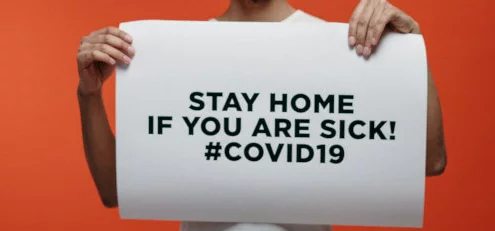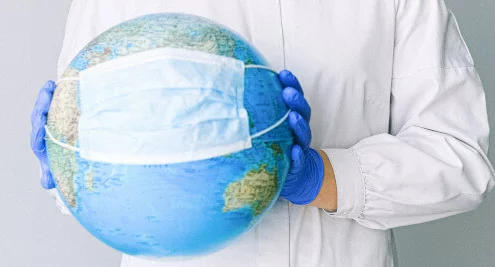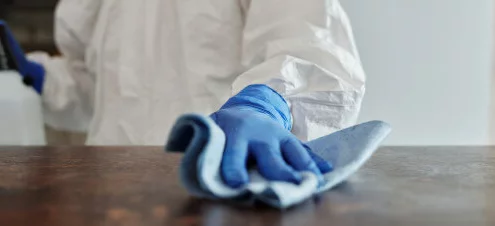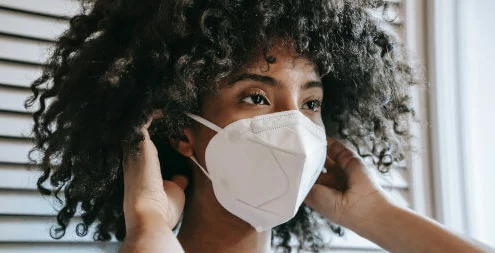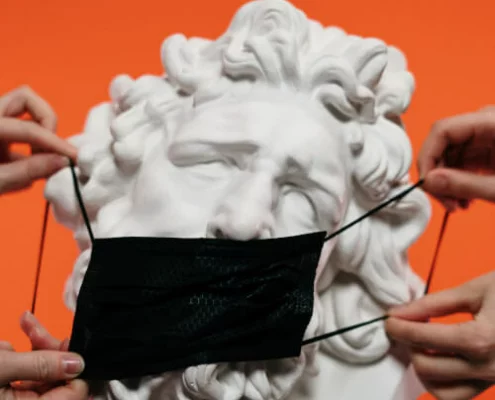The current COVID-19 outbreak impacts global and national production and trade systems. Film / Stills productions are classified as essential services and have granted permission to operate during Covid-19
Guidelines for the film industry and value chain in Cape Town during the national state of disaster declared by the coronavirus disease 2019 (Covid-19) pandemic.
PREVENTION WORKPLACE PREPARATION
Regulations on Risk-Adjusted Strategies dated 29 April 2020:
What are the plans for a phased return of employees to work? What health protocols are in place to protect employees from Covid-19? Develop measures to ensure workplace health protocols, adequate employee space, and social distancing for the public and service providers.
In the workplace, conduct a risk assessment to identify likely points of contact between people and objects.
- Develop practical measures to limit and disinfect each of these points of contact.
- All staff, cast, and crew must complete a health questionnaire to determine recent illness exposure.Screen staff, cast, and crew for Coronavirus symptoms daily at the start of each shift/shoot and record daily temperatures.
- If a non-touch heat sensor is available and the staff agrees, it can be used to monitor the temperature. Include Covid-19 in Daily Safety Meetings.
- Scheduling and executing multiple meetings may be required.
- Keep staff/cast/crew informed about how to prevent the spread of coronavirus at work and home.
- Give staff/cast/crew at least two cloth masks so they can wash and dry one while using the other. Use and care for cloth masks
DISTANCING PHYSICAL
- Employers should allow employees to work from home whenever possible.
- Keep a 1.5 metre (2 arm length) distance from other people to avoid infection.
Beware of crowds. Avoid cramming staff/cast/crew together at work. - Rearrange work spaces so that each staff/cast/crew member is 1.5 metres apart. It should be considered if social/physical distance cannot be achieved.
Avoid crowding staff, cast, and crew in common areas like kitchens, catering, and craft areas. - Segment studio backstage and/or on-location areas so that production teams are separated.
- Work with one department at a time.
- Keep unit/location managers and staff as close as possible to their desks.
- Avoid handshakes and body contact. Smile, nod, bow, or wave at people.
- When traveling in public or designated staff vehicles such as taxis or buses, crew members should sit as far from other passengers as possible. The vehicle’s load capacity should not exceed 50%, all windows should be open for maximum ventilation, and staff should wear cloth masks. Ensure all transport drivers are up to date on personnel transportation regulations.
PROTOCOLS AT WORK
All personnel must be informed of the risk of spreading Covid-19 and the expected behavior.
A sign identifying the Covid-19 Compliance Officer must be posted at the workplace entrance/s.
Workplaces should have only one entrance/exit to manage employee numbers.
- The number of people in the workplace at any given time must be kept to a minimum.
- Staff should be stationed at the workplace entrance to control access and enforce guidelines such as the use of cloth masks, hand sanitisers, and social distancing in communal and catering areas.
- In addition, a daily on-site register of all visitors must be kept, with full contact information and daily temperature. For example, if an employee is infected or has been in contact with an infected person, the Covid-19 Compliance Officer must keep a daily log for at least 90 days.
- Provide staff, cast, crew, and clients with alcohol-based hand sanitizer to use before entering and leaving the workplace. Hand sanitiser spray on hands Staff cannot handle sanitiser container/dispenser.
- Clean the workplace/set daily.
Before returning items to storage/service/equipment providers, clean them. A production worker or a service/equipment provider can do this.
- Provide alcohol-based sanitizing wipes to clean props and equipment between takes.
- No more cafeteria-style buffet meals and snacks. Single-serving pre-packaged meals from a compliant provider.
- Staggering meal/lunch times to maintain social distance protocols.
Cast/actors/crew will need extra protection because their health is vital to keeping a production running and crew employed. Because actors cannot wear protective gear in front of the camera, all crew members who come into contact with actors or directors must wear masks and gloves. - During the Covid-19 pandemic, the use of communal water coolers will need to be reviewed and appropriate hydration measures implemented.
- No sharing of tools, equipment, radios, or phones.
HYGIENE AND HAND-WASHING MEASURES
- Wash hands with soap and water for 20 seconds. In the absence of soap and water, they can rub their hands for 20 seconds with a 70% alcohol-based hand sanitiser. Staff, cast, and crew must wash hands after touching people, surfaces, or objects.
- Avoid touching your mouth, nose, or eyes.
- Assist staff, cast, and crew members in regularly washing their hands or using a 70% alcohol-based hand sanitiser.
- If staff/cast/crew must touch people or take things from them, they should offer them a 70% alcohol-based hand sanitiser to clean their hands before assisting. Use the hand sanitizer. Don’t give them the sanitizer.
- When staff, cast, and crew enter and exit the workplace, they should be offered 70% alcohol-based hand sanitiser.
Wash surfaces, props, and equipment regularly. Alternatively, use a 70% alcohol hand sanitiser or a diluted bleach solution. Assign one person per department to constantly wipe down surfaces. - Cough into an elbow or a tissue, then throw the tissue in a bin and wash your hands.
TEAM-SUPPORT
- All companies must educate their staff/cast/crew on how coronavirus is spread and how to avoid infection.
- All staff/cast/crew must understand what activities pose an infection risk and what precautions must be taken.
- Repeated messaging should be accompanied by appropriate signage.
STAFF/CAST/CREW MONITORS
Any of the following symptoms must be reported to a coronavirus testing center:
– 38°C fever/temperature
– Cough
– Throat
– Breathlessness
- Infected staff/cast/crew members must notify their employer and/or client immediately so that they can help the employee, as well as other employees, assess and implement measures to stop the spread of the coronavirus, whether at work or at home, and to enable contact tracing.
- All staff/cast/crew should be screened/monitored daily upon arrival.
- Checking the temperature of cast/crew members with a non-contact thermometer (thermal scanner). Over 38 degrees should be recorded. No one with a fever should be allowed to work.
- Anyone exhibiting symptoms during the day should be placed in a well-ventilated room by a Covid-19 Compliance Officer or on-site medic.
- A facemask and hand sanitiser must be provided by the Covid-19 Compliance Officer or on-site medic.
Wearing cloth face masks is advised as follows:
Handwashing before applying the mask
– Position the mask correctly facing your nose and mouth. Cover both well.
– Tie the strings behind your head or tighten the elastic bands on the mask.
– After putting on the cloth face mask, DO NOT TOUCH YOUR FACE OR THE MASK until you remove it.
– Do not wear the mask around your neck.
-After removing the mask, wash your hands well.
– If you need to remove your cloth mask during the workday (e.g. during tea/lunch break) and reapply it, only handle the mask by the strings. It must be stored in a paper bag (labeled with the person’s name).
PROTECTION EQUIPMENT (PPE)
Wear protective gear such as gloves, goggles, face shields, and masks that cover the nose and mouth.
CLOTH FACE MASK
All staff, cast, and crew must wear cloth face masks.
Each person should have two cloth face masks, one for use and one for washing. Even if you are wearing a mask, you must still keep a 1.5 metre distance from others and wash your hands frequently.
Everyone must be taught how to put on and remove a facemask.
VENTILATION
Maximize natural ventilation in stores/workplaces For example, leave a back door open with a security gate, open windows, or use fans.
STAFF BATHROOMS
Encourage staff to wash their hands by posting signs.
(b) Provide handwashing water and soap. Contactless or elbow-operated taps are preferred.
(c) Do not share bathroom towels. Use paper towels that can be sealed into bins instead (operated by a step).
(d) Use bins that can hold multiple paper towels and/or empty them frequently.
WASTE HANDLING
(a) Empty waste containers should be sealed in plastic bags and placed in the general waste for collection.
(b) When emptying waste containers, staff must wear utility gloves and face masks.
Closable shoes for waste handlers and cleaners
(d) Medical waste must be handled according to applicable protocols.
LOCATIONS
(a) Thoroughly clean areas before and after use.
(b) Select disinfectants with care to avoid damage.
A permit should be applied for as soon as possible in case of new rules.
(d) Allow backup locations in case a primary location withdraws or becomes unavailable.
(e) Use base camps to reduce set size and promote social distance
(f) Provide alternate lodging for house occupants, including pets, during the shoot.
g) Expand social distancing.
(h) When available, provide sensor-activated soap dispensers and hand dryers.
I Provide washing stations without running water.
(j) Assign one person to handle all location signs.
(k) Keep sets to a minimum and avoid extra visitors.
(l) A daily on-site register of all visitors must be kept with full contact details.
TRANSPORT
(a) All staff, cast and crew must use their own vehicles.
In the absence of personal transportation, the Department of Transportation must provide it.
(c) All transportation staff must be regularly updated on transportation regulations.
(d) Production management must ensure that all drivers and passengers wear facemasks.
In addition, operators must sanitize transport vehicles’ door and window handles, armrests, and handrails after each load and before each passenger.
(f) Assign one driver per vehicle during prep and wrap.
ART DEPT
(a) Ask the location owner to keep personal items to a minimum.
(b) Make tech scout decisions as soon as possible.
(c) Value prep and strike days. This may be combined with site cleaning.
SECTOR ELECTRICAL, GRIPS
(a) More gear may be required to prevent sharing.
(b) Only grips should handle grip gear.
(c) Order more equipment and assign it to other departments.
MAKEUP AND HAIR
(a) PPE must be worn during all personal contact.
(b) Make-up artists and/or hair stylists should wear face shields.
c) Make-up stations should be at least 1.5m apart.
Towels and soap should be used before and after the session.
(e) Dispose of makeup kits and brushes after each use.
For each actor, use only one makeup brush, applicator, etc.
(g) Disinfect hairbrushes, combs, and reusable makeup brushes.
(h) Assign brushes/combs to each actor to avoid cross-contamination.
I If possible, have the actors arrive with their own make-up and hair.
(j) Only use touch-ups when necessary.
(k) Only use hair and make-up on secondary/backup actors.
GARMENT DEPARTMENT
(a) Leave the costumes/work clothes at the store and launder in bulk using standard safety precautions.
(b) If leaving costumes/work clothes at the workplace for laundering is not feasible, advise staff to remove them and place in a plastic bag. They should wash their hands after removing their costumes. They should then wash their costumes/work clothes at home in warm water.
The staff should remove their work clothes immediately upon arrival home and place them in a washing basket if changing at work is not feasible. They should wash their hands after work. Staff/cast/crew would need enough costumes/work clothes to change daily.
(d) Remote wardrobe fittings via Facetime, Zoom, Skype, etc.
(e) Wardrobe planning and rental house shopping should be done beforehand.
(f) Only the wardrobe department should handle clothing until an actor’s actual try-on is decided.
G) Wear gloves and a mask when browsing clothes in rental houses and shops.
(h) Book talent and get sizes early.
Each performer should bag their own costumes and outfits.
(j) Ask clients for permission to keep purchased wardrobe.
(k) Actors should arrive in their own clothes.
(l) Wash jewelry and glasses after use.
CAMERA DEPT
(a) Pick-up crew must wear gloves.
(b) Wipe down cases before loading.
The only people who should handle camera equipment are camera personnel.
(d) Wipe down personal equipment daily upon arrival and departure.
A non-shareable camera kit for each member of the camera crew.
(f) Separate camera prep area.
AUDIO DEPARTMENT
(a) Clean and disinfect equipment.
(b) Label mics with the user’s name.
(c) Clean mics and transmitters between uses.
(d) Replace non-cleanable mounting components.
(e) PPE should be worn during all personal contact.
(d)Use only boom audio when possible.
The script may call for a second Boom Operator.
- The Covid19 Compliance Officer may not deviate from the medic’s primary role and functions on set.
- The crew, extras, service providers, and visitors may require additional medics on set.
- Medical personnel should monitor staff, cast, and crew and take temperatures.
- Medical personnel should patrol the set and ensure that all SOPs are followed.
ON-SET COMMUNICATION
Sign out devices (radios, phones, loud-hailers, etc.) the day before.
(b) Hand each device to the user in its own bag.
c) No device sharing.
(d) Disinfect replacement batteries between uses, bag them, and hand them to the crew.
VIDEO VILLAGE SETUP
(a) Clean chairs before and after use.
(b) Directors chairs to be plastic for easy disinfection.
(c) If possible, set up Video Village outside.
(d) Addition monitors for social distancing.
(e) Provide separate monitors for each person viewing the scene.
Then remove the temporary clear barrier between actors while setting marks and positions.
(b) Consider different shot angles, lenses, etc.
(c) For intimate scenes, talent should be virus-free and able to perform.
MINORS AT WORK Wear PPE that fits minors.
PPE and social distancing for chaperones
Allow minors and their chaperones to practice social distancing in a separate area when possible.
Aim for a natural look.
Amount of Extras required must be carefully considered.
Assist Extras with tables and chairs to promote social distancing.
(c) Give each Extra one pen and tell them not to share.
FILM CAPE TOWN
- SUPPLIER GOODS RECEIPT
(a) Drivers should stay in their vehicles.
(b) Maintain physical distance when receiving goods.
A 70% alcohol-based hand sanitiser is required before handing over any goods/equipment.
(d) Require all delivery and receiving staff to regularly wash their hands with 70% alcohol.
CLEANING ROUTINES
(a) The Covid Compliance Officer will be in charge of daily workplace sanitation.
(b) The environment must be sanitised each day before work, during the day, and after work.
d) Frequently touched surfaces and objects should be cleaned and disinfected regularly.
(e) Clean with soap and water when possible. Then clean with diluted bleach. 20ml bleach per litre water
(f) If a surface cannot be cleaned with soap and water, gently wipe it with a 70% alcohol solution.
SELF-SERVICE KITCHEN
(a) Self-service food stations with partially covered or uncovered food items are prohibited.
The only lunch boxes will be pre-packed.
FILM CAPE TOWN LOCATIONS
- Scouting should be done virtually.
- Plan the tech scouting early.
- Create a digital tech scout packet.
- When choosing a location, consider size and space.
- Consider how many locations are scouted in person.
- Carpoolers must wear facemasks and follow all Department of Transportation regulations.
- Rent multiple vehicles to allow for seat spacing.
- When planning a shoot, maximize space and air flow.
- Drivers should wipe down interior vans (seats, handles, etc.) after each use.
FILM CAPE TOWN
The number of staff in a workspace must be kept to a minimum and subject to physical distancing guidelines.
(c) Non-essential Visitors/staff/cast/crew should be kept to a minimum.
(d) Upon arrival, all visitors must be informed of and required to follow all prevention measures.
(e) Location scouts, unit managers, and/or any staff participating in pre-production planning and activities must adhere to all Covid-19 curtailment measures and requirements. If the Covid-19 curtailment measures for any site/location/facility are unclear, the measures in this document should be applied until the responsible persons for the site/location/facility clarify.
FILM CAPE TOWN
Work shifts and break times should be staggered to reduce the number of staff, cast, and crew in the catering/craft area, break room or canteen at any given time.
(b) Encourage staff/cast/crew to spend their breaks outside, depending on the facility and weather.
(c) Post signs reminding staff to wash their hands before eating and to keep their distance.
(d) Provide a wash basin and soap in the staff break room.
e) Clean all surfaces thoroughly.

